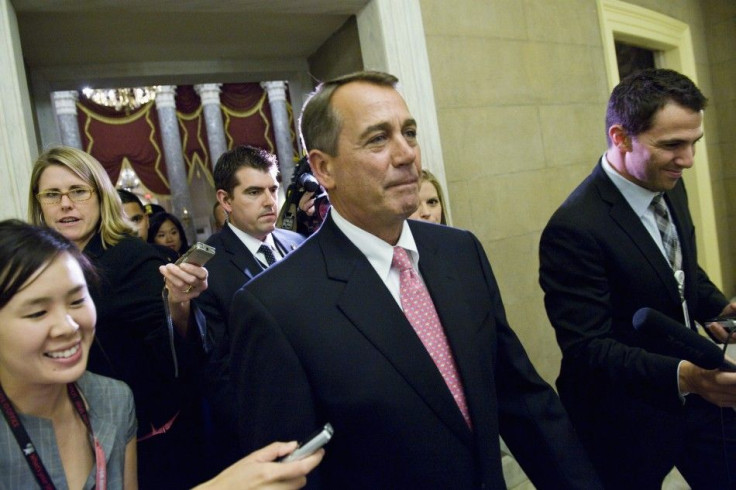Debt Deal: 12 Lawmakers to Shape $1.5 Trillion Reduction

Establishing the contours of a massive debt deal consumed all of Congress, but filling in the $1.5 trillion details will be the responsibility of a mere dozen lawmakers.
After clamoring for a large-scale debt deal by invoking Congress' solemn responsibility to act on a ballooning deficit, Congress has delegated that responsibility to a yet-to-be-named bipartisan commission. The debt deal is divided into two phases: an initial round of about $900 billion in cuts to agency spending will be followed by about $1.5 trillion in additional reductions, the details of which are to be determined by the special committee. The committee's recommendations would be subject to an up or down vote and would not be able to be amended.
The deal includes safeguards to prevent the sort of stalemate that left the U.S. on the precipice of default. A failure to strike a compromise by Nov. 23 -- either if the committee does not act or if Congress votes down their plan -- would automatically trigger steep cuts to defense spending and domestic programs, exposing priorities for both parties to the budget axe.
Already, some members of Congress have lambasted the proposal for circumventing the usual legislative process and allowing a handful of elected officials to shape a deal of such immense magnitude. Rep. Michael C. Burgess, R-Texas, told The New York Times that "I hate it, I hate it, I hate it with a passion" when referring to the panel's authority.
It is an animosity shared by lobbyists who are already planning to mount an exhaustive campaign to sway lawmakers on everything from tax reform to Social Security. Republican lobbyist Alex Vogel dubbed the lawmakers the 'Dirty Dozen,' given the amount of lobbying they will endure in the coming months, but other lobbyists say they will need to augment their efforts in order to compensate for the outsize influence of the small panel.
"It's a cowardly way to make public policy that's going to affect every American," said Eric Kingson, a professor at Syracuse University and co-chairman of the Strengthen Social Security campaign. "When changes are made, they ought to be made through the normal legislative process -- not through a commission that enables members of Congress to hide from very hard choices."
Some have also questioned whether the panel will be able to surmount the bitter partisan divides that stalled a deal in Congress at large. The bipartisan Gang of Six saw their relatively moderate recommendations largely ignored in favor of a deal that was generally seen as skewed farther to the right, a trend that could play out in the committee.
"They tend not to work," said Sarah Binder, a historian of Congress at George Washington University. "The same conflict that leads to the creation of these groups gets replicated in those groups."
The panel will also be working under the threat of a presidential veto if it does not address taxes. Republicans have categorically rejected any new sources of tax revenue throughout the talks so far, but President Barack Obama has said he would veto any package that sought to extend Bush-era tax cuts for the nation's top earners.
"If you are adamantly opposed to returning the rates for the wealthiest Americans to what they were in the Clinton administration then you have a tremendous incentive to deal with it in the tax reform process," a White House official told The Huffington Post in reference to Republican lawmakers. "If they send something that has the Bush tax cuts for the wealthy attached, [Obama] will veto it."
© Copyright IBTimes 2024. All rights reserved.





















